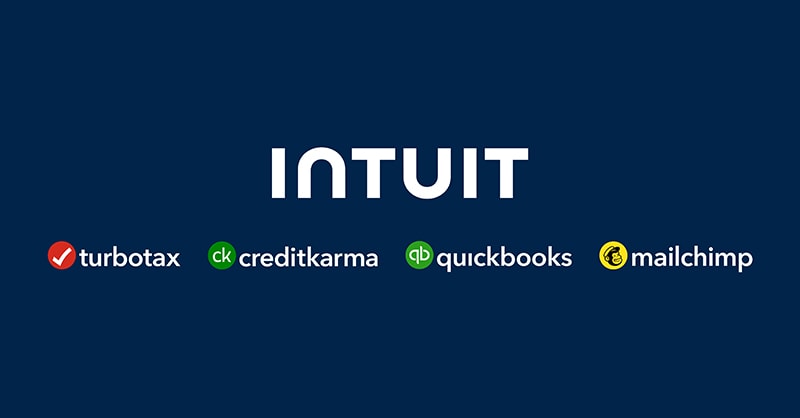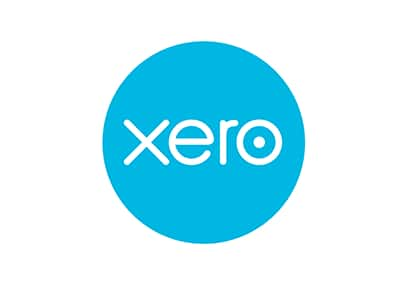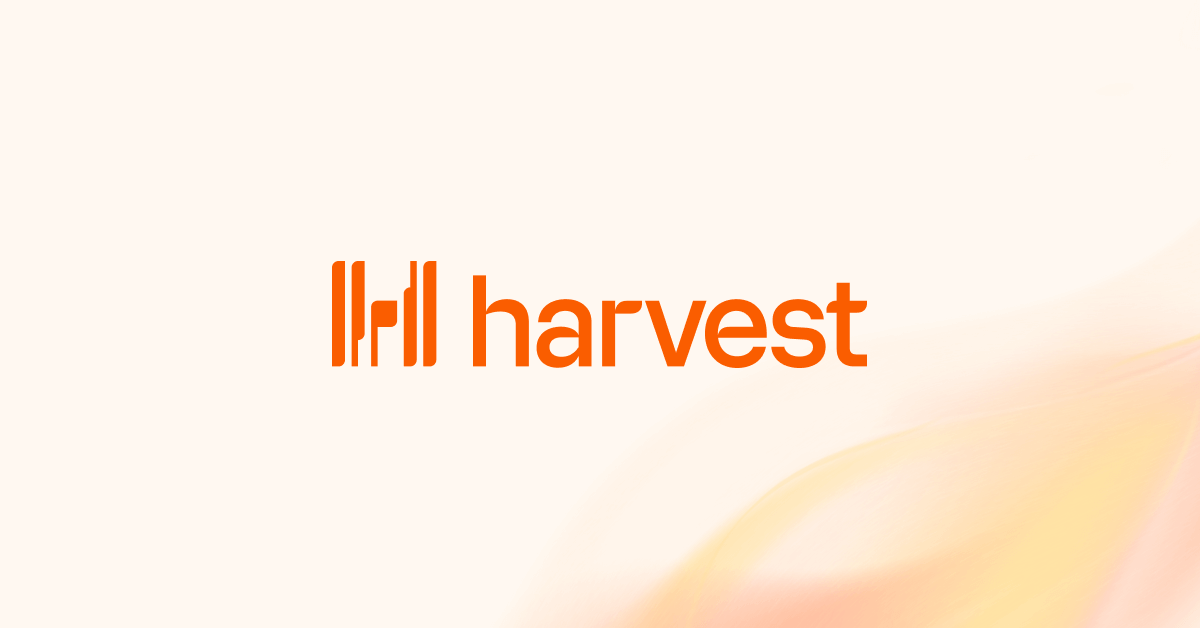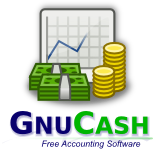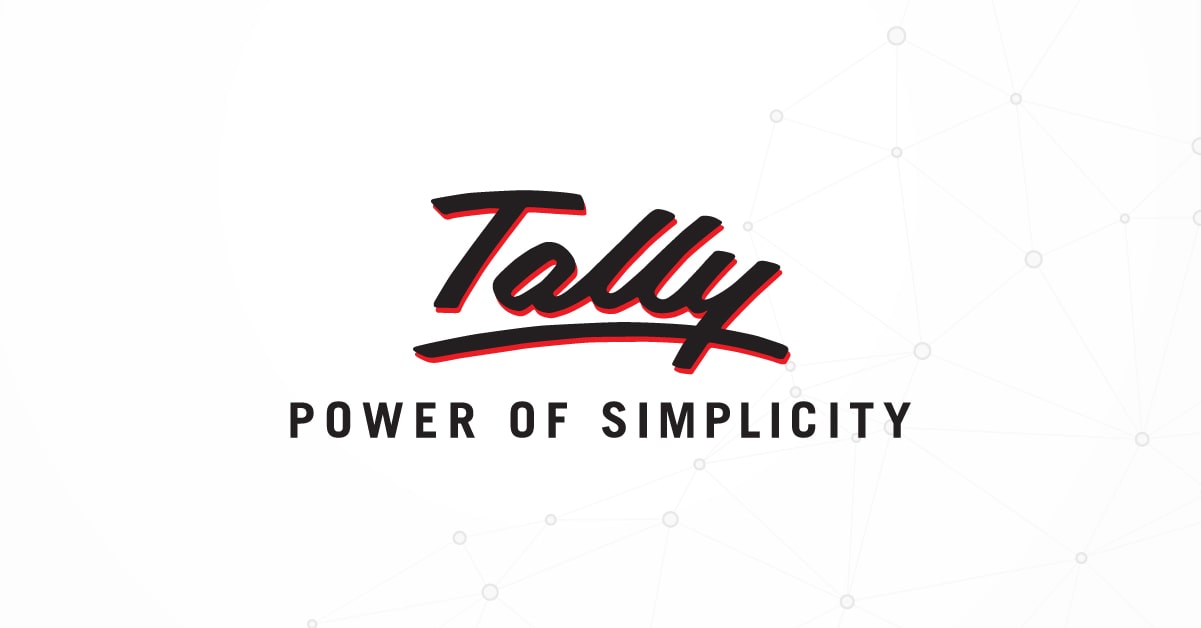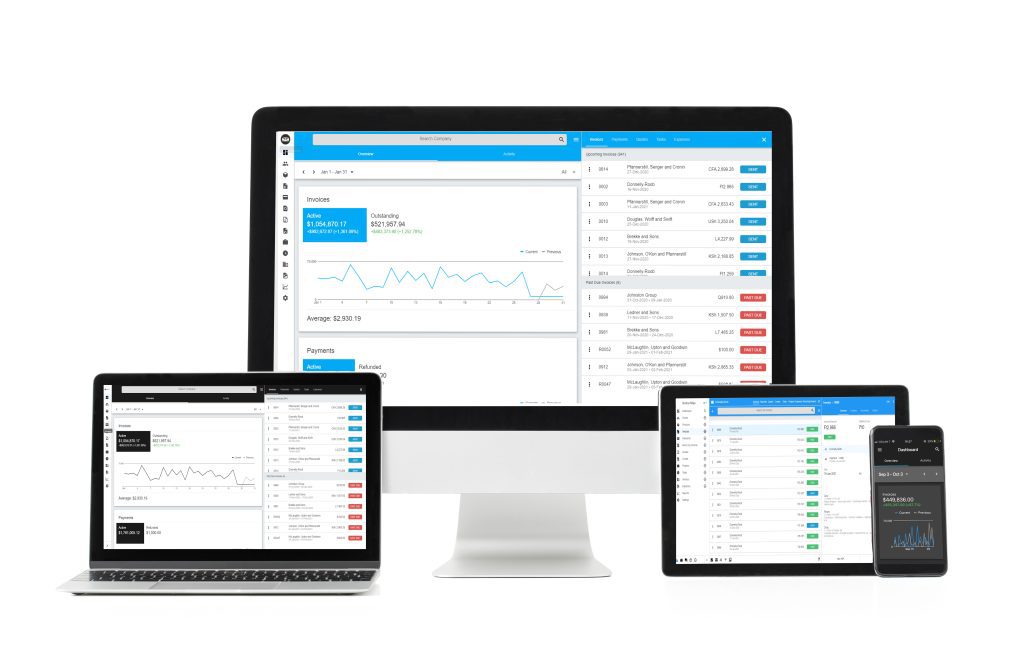Introduction
As a small business owner, managing your finances and accounting can be a complex task. While many opt for expensive commercial accounting software, there are several good free and open source options available that provide core accounting functionality without costing a penny. In this blog, we evaluate and compare 15 top free accounting software options to help you choose the right one for your growing business.
Methods of Evaluation
To evaluate and rank the accounting software, we considered various factors like features and functionality, ease of use, integration capabilities, pricing options, customer support, reviews and ratings. We also leveraged metrics like number of backlinks, average monthly search volumes for target keywords, traffic and engagement on company pages to understand overall online presence and demand for each software. The top software were then shortlisted based on checks for these conventional evaluation methods as well as digital metrics.
1. QuickBooks Online
QuickBooks Online is an online accounting software developed and marketed by Intuit. It allows small businesses to track income and expenses, manage invoices and payments, and run business reports. Some key features include billing, invoicing, connecting to bank accounts, and supporting various integrations with other apps.
Pros: Wide range of features like billing, invoicing etc.,Connects to various bank accounts,Supports integrations,Basic version is free for up to 3 users
Cons: More advanced features require paid subscriptions,Some integrations may require third party apps,Learning curve for new users
Pricing: The basic or self-employed version is free for up to 3 users. Other paid plans range from $25-$100 per month based on number of users and features.
QuickBooks Online has over 4 million subscribers worldwide. The basic or self-employed version is free for up to 3 users. It is one of the most popular accounting software options for small businesses.
2. Xero
Xero is a leading cloud-based accounting software for small businesses. Founded in 2006, Xero has grown to serve over 3 million subscribers worldwide. The platform provides an easy to use online and mobile accounting solution to help businesses manage their finances, accounting, invoicing, and bookkeeping.
Pros: Some key advantages of Xero include:
– Beautiful and easy to use dashboard
– Automated bank feeds and automated tax filing
– Provides mobile apps for iOS and Android
– Basic plan is free for 3 users
– Excellent support for accountants and bookkeepers
Cons: One potential disadvantage is that premium pricing tiers could be expensive for larger businesses compared to some competitors.
Pricing: Xero offers various pricing tiers:
– Startup: Free, for up to 3 users
– Simple Start: $9/month, for up to 5 users
– Essentials: $30/month, for up to 10 users
– Standard: $70/month, for up to 20 users
– Premium: $150/month, fully customizable for larger teams
Some key stats about Xero include:
– Over 3 million subscribers globally
– Connects to over 1300 bank feeds worldwide
– Available in over 180 countries
– Integrates with over 800 third party apps
3. FreshBooks
FreshBooks is cloud-based accounting software designed for small businesses and freelancers. Since 2004, FreshBooks has been helping small business owners save time and get paid faster. With intuitive invoicing, time tracking, expense management and online payments, FreshBooks makes it easy to manage your business finances.
Pros: Some key advantages of FreshBooks include:
– Intuitive time tracking feature allows you to easily track billable hours
– Generates clean, professional looking invoices with customizable templates
– Built-in expenses management allows you to easily track receipts and submit expense reports
– Accept payments online via credit card for faster payments
Cons: One potential disadvantages is the free plan is limited to 3 clients only, so may not be suitable for very large client bases on the free tier.
Pricing: FreshBooks offers 3 pricing tiers:
– Free plan (up to 3 clients)
– Solo plan ($15/month)
– Team plan (starting at $25/user/month)
Some key stats about FreshBooks include:
– Used by over 20 million users worldwide
– Over 15 years of experience in small business accounting software
– Fast, easy setup with no downloads or installations required
– Invoice payments received on average in less than 10 days
4. Wave
Wave is an award-winning small business accounting software that offers free versions for sole proprietors and freelancers. Founded in 2003 and headquartered in Toronto, Canada, Wave has helped over 2 million businesses focus on growing their company instead of spending time on admin tasks like invoicing and bookkeeping.
Pros: Some key advantages of Wave include:
– It is completely free to use for the basic accounting needs of a sole proprietorship
– Has a very simple and intuitive interface that makes accounting easy and approachable for non-accountants
– Offers multi-currency support to accept payments in different currencies
– Provides full integration with various business apps like inventory management, CRM, e-commerce etc.
– Offers payroll processing capability for Canadian and US businesses
Cons: One of the key disadvantages of the free Wave plan is that it only allows up to 3 users. For companies with more than 3 users, you would need to upgrade to one of the paid Wave plans starting at $25/month.
Pricing: Wave offers the following pricing plans:
– Free Plan: Supports up to 3 users forever for basic accounting needs
– Plus Plan: $25/month – Removes user limit and adds additional features
– Premium Plan: $45/month – Includes even more features like expense tracking, time tracking etc.
Some key stats about Wave include:
– Used by over 2 million businesses worldwide
– Integrates with over 250+ apps like MailChimp, Facebook etc.
– Free version supports up to 3 users
– Pricing starts from $25/month for the Premium plan
5. TaxCloud
TaxCloud, formerly known as Avalara, is an industry leader in sales tax compliance and automation software. Founded in 2004, TaxCloud helps thousands of businesses calculate and file their sales tax accurately and on time. With 20+ years of expertise, TaxCloud makes sales tax compliance effortless through their automated software.
Pros: Some key advantages of using TaxCloud include: Automatically calculates accurate sales tax for orders, Automatically files sales tax returns via their easy-to-use software, integrates seamlessly with platforms like Shopify, WooCommerce, QuickBooks and more, robust support including training, manuals and 24/7 phone/email assistance.
Cons: The main disadvantage is that their free Basic plan is only useful for very low transaction volumes. For most small businesses, their paid plans starting at $49/month will be required to manage adequate sales tax automation needs.
Pricing: TaxCloud offers various paid plans starting from $49/month for their Professional plan up to enterprise solutions for very large businesses. They also offer a free Basic plan for very low sales volumes under $10,000 annually but it has limited features and support.
Some key stats about TaxCloud include: Processes over $500 billion in transactions annually, manages sales tax for over 50,000 customers globally, operates in over 11,000 taxing jurisdictions across the world, supports sales tax rates that can change over 1,000 times per year.
6. PandaDoc
PandaDoc is an all-in-one document workflow and contract automation software that streamlines proposal and agreement creation. Founded in 2013 and based in Lithuania, PandaDoc helps over 50,000 customers in 141 countries save time and money by automating document workflows.
Pros: Some key advantages of PandaDoc include:
– Intuitive drag-and-drop builder for fast template creation
– Powerful customization options for document and proposals styles
– Full tracking and analytics of document approval status
– Integrations for seamless transfer of data between systems
– Strong security features including SOC 2 Type II compliance
Cons: One potential disadvantage is that it lacks some advanced accounting functions found in dedicated accounting software like QuickBooks. However, PandaDoc is focused more on document workflow automation rather than serving as a full accounting solution.
Pricing: PandaDoc offers three pricing tiers:
– Free Plan: Limited to 3 active documents and templates. Watermarked output.
– Business $49/month: Unlimited documents and users. Advanced customization options.
– Enterprise (custom quote): Includes additional support and custom configurations.
Some key stats about PandaDoc include:
– Processes over $15 billion in invoices and contracts annually
– Saves customers an average of 40% time each month on document workflows
– Integrates with over 60 different applications including QuickBooks, Xero, Salesforce, Hubspot, and Microsoft Office
– Has a 4.8/5 star rating on Trustpilot with over 4,000 customer reviews
7. Harvest
Harvest is cloud-based time tracking and invoicing software that helps simplify workflows for freelancers and businesses. In business since 2006, Harvest serves over 73,000 customers around the world and offers both free and paid subscription plans.
Pros: Some key advantages of Harvest include:
– Powerful time tracking that syncs across devices
– Flexible invoicing templates and automated billing
– Online payment collection via credit card or PayPal
– Customizable workflows and dashboard views
– Integrations with common business apps for streamlined processes
Cons: One potential disadvantage is that the free plan is limited to 2 active clients only, so it may not be suitable for agencies or businesses with many clients.
Pricing: Harvest offers three paid subscription plans in addition to a free forever plan:
– Free plan: Up to 2 active clients, up to 10,000 records
– Plus plan: $12/user/month billed annually, unlimited clients/records
– Premium plan: $24/user/month billed monthly, additional features like expense tracking
Some key stats about Harvest include:
– Founded in 2006 and based in Montreal, Canada
– Serves over 73,000 customers globally
– Offers both free and paid subscription plans
– Integrates with over 150 apps including QuickBooks, Google Drive and Dropbox
– Available on desktop via browser or as a mobile app for iOS and Android
8. GnuCash
GnuCash is an open source and free personal and small business accounting software application. It is freely licensed under the GNU GPL (General Public License) and available for GNU/Linux, BSD, Solaris, Mac OS X and Windows operating systems. GnuCash allows users to track bank accounts, stocks, income and expenses. It implements double-entry bookkeeping, keeping the debits and credits of transactions balanced.
Pros: Some key advantages of GnuCash include:
– It is free and open source software, so it doesn’t cost anything to download and use.
– It uses double-entry bookkeeping which ensures transactions stay balanced.
– It has an easy to use graphical interface that resembles popular accounting software.
– GnuCash is cross-platform, allowing it to be used on Windows, Mac and Linux operating systems.
Cons: One potential disadvantage is that as an open source project, it may not receive updates and support as quickly as proprietary paid accounting software. However, the large community of users and developers work to address issues and improve the software.
Pricing: GnuCash is completely free to download and use, with no subscription or licensing fees. It operates under the GNU GPL open source software license model, where the source code is freely available and modifiable by anyone.
Some key stats about GnuCash include:
– It has been in development since 1997 and currently supports over 30 translations.
– It is used by over 2 million users worldwide.
– Supported bookkeeping systems include accrual, cash and tax-based accounting.
– Allows connecting to most banking institutions via OFX or QIF file import.
9. TaxAct
TaxAct is an online tax filing and preparation software available on taxact.com. As one of the leading digital tax filing solutions, TaxAct allows users to easily file their federal and state taxes electronically for free.
Pros: Some key advantages of using TaxAct include:
– Free federal and state e-filing for basic tax returns.
– Easy to use interface to guide you through the tax filing process.
– Import tax documents like W-2, 1099 and 1098 forms directly.
– Dedicated support services available through web, phone or chat.
Cons: One potential disadvantage is that more complex tax situations may require an upgrade to a paid version of the software for accurate filing and maximum deductions.
Pricing: TaxAct offers three versions – Free, Deluxe and Premier. The Free version allows basic federal and state e-filing at no cost. Upgrades provide additional forms and deductions at $35 for Deluxe and $60 for Premier for both federal and state filing.
Some key stats about TaxAct include:
– Has been used to file over 50 million tax returns since 1986.
– Offers free federal and state e-filing for simple returns.
– Provides audit support and tax planning tools.
10. Chargebee
Chargebee is subscription billing and revenue management software that helps SaaS and subscription businesses with recurring billing, invoicing, subscription management, automated payments, and more. Founded in 2011 and based in Chennai, India, Chargebee serves over 3,500 customers globally including names like Freshworks, Calendly, and Study.com. Their platform aims to simplify revenue operations and allow businesses to focus on growth.
Pros: Some key advantages of using Chargebee include:
– Recurring billing and invoicing powered by a robust rules engine
– Automated subscription, payment and invoice management
– Usage-based and metered pricing support out of the box
– Integrations with major payment gateways and apps via open API
– Robust reporting and analytics on KPIs like churn, renewal rates etc.
Cons: As with any software, there are some disadvantages to consider with Chargebee:
– Pricing starts at a minimum of $49 per month which may not be suitable for the smallest of businesses
– Limited customization options compared to building a solution in-house
– Learning curve for some advanced configuration and automation
Pricing: Chargebee offers simple tiered pricing plans based on the number of customers (seats) and invoice/transactions volume. Pricing starts at $49 per month for up to 100 customers and 5,000 transactions. Volume-based plans are also available for businesses with more complex needs.
Some key stats about Chargebee include:
– Processes over $5 billion in annual recurring revenue
– Used by over 3,500 customers globally
– Integrations with over 200 apps including Shopify, Stripe and Zapier
– Available in 11 languages with data centers around the world
11. FreeAgent
FreeAgent is an award-winning, cloud-based accounting software designed for UK small businesses. In business since 2006, FreeAgent helps over 50,000 customers manage their finances, streamline workflows and gain insights. Their software combines invoicing, expenses, banking, VAT filing and business intelligence into one easy-to-use platform.
Pros: Key advantages of FreeAgent include:
– Cloud-based software accessible from any device
– Built-in business intelligence dashboards and reports
– Ability to import bank and credit card transactions automatically
– VAT filing and Self Assessment functionality included
Cons: A potential disadvantage is that the free plan only supports up to 3 users. Larger teams may need an upgraded paid plan.
Pricing: FreeAgent offers a free plan for up to 3 users as well as paid professional and premium plans starting at £15/month for a single user.
Some key stats about FreeAgent include:
– Over 50,000 customers
– Founded in 2006
– Teams of up to 3 users can use the free plan
– Integrates with over 250 UK banks and credit cards
12. Booker
Booker is a cloud-based invoicing and bookkeeping software for small businesses like salons, spas, gyms and more. It allows you to easily generate and track invoices, manage appointments and payments, build out custom packages/memberships and gets insights into your business performance. Booker offers both a free version for up to 3 users as well as paid plans for larger teams.
Pros: Some key advantages of Booker include:
– Cloud-based system that allows you to access client data from anywhere
– Customizable invoices and service quotes that you can brand to your business
– Seamless integration with payment processors like Stripe for easy client payments
– Free version available for up to 3 users/team members to try it out with no commitment
Cons: One potential disadvantage is the paid subscription is required to support more than 3 users/team members. For larger teams, this could become a recurring monthly cost.
Pricing: Booker offers both a free version as well as paid monthly/annual subscription plans. The free version supports up to 3 users while paid ‘Pro’ plans starting at $29/month for up to 5 users and scale up from there based on team size and features needed.
Some key stats about Booker include:
– Used by over 30,000 businesses worldwide
– integrates with over 100 payment gateways including Stripe, Square and PayPal
– Mobile apps available for both iOS and Android
13. Tally.ERP 9
Tally.ERP 9 is one of the most popular accounting software in India. Developed by Tally Solutions, it has been the preferred accounting software for small and medium businesses for over 30 years. Some key facts about Tally.ERP 9 include that it is very powerful double-entry accounting software that supports multi-user access and features like GST, TDS, e-way bill generation and stock/inventory management.
Pros: Some key advantages of Tally.ERP 9 include that it is very powerful double-entry accounting software, provides multi-user support, supports GST, TDS and e-way bill generation processes out of the box and has a free version available for personal/home use.
Cons: As Tally.ERP 9 is primarily designed for Indian GST and taxation compliance, it may not be very suitable for businesses operating outside of India. The user interface also takes time to get used to for people migrating from other accounting software.
Pricing: Tally.ERP 9 offers different pricing plans based on the number of concurrent users required – Rs. 15,000 for 1 user, Rs. 30,000 for 3 users and Rs. 60,000 for unlimited users. It also offers an annual technical support and upgrades package starting from Rs. 3,000.
Tally.ERP 9 has over 30 years of experience in the Indian market. It currently has over 5 million downloads and is used by over 1 million businesses across India. The software complies with Indian GST, TDS, and other financial and taxation laws of India.
14. Invoice Ninja
Invoice Ninja is a free and open source invoicing software developed by InvoicePlane. It allows users to create, send and track invoices online as well as support estimates and expenses. With over 5 million downloads globally, it has proven to be a good starting option for sole traders and freelancers looking for a free invoicing solution.
Pros: Some key advantages of Invoice Ninja include:
– It is completely free and open source software
– Allows users to create, send and track invoices online
– Supports estimates to provide quotes to clients
– Expenses can be tracked against invoices for better reporting
– Good starting option for sole traders and freelancers on a budget
Cons: One potential disadvantage is that being an open source software, it may not have as many advanced features when compared to paid invoicing solutions. The feature set is mostly focused on the basics of invoicing.
Pricing: Invoice Ninja is completely free to use without any limitations. There are no monthly or annual subscription fees. The software is funded through optional donations by users.
Some key stats about Invoice Ninja include:
– Over 5 million downloads globally
– Used in over 100 countries
– Available in over 20 languages
– Integrates with over 30 payment gateways
15. Pleo
Pleo is an expense management and corporate card solution for small businesses. Founded in 2015, Pleo provides a smart card and app that allows employees to make purchases and expense claims for their company. With over 25,000 customers, Pleo aims to make spending and getting reimbursed for work expenses easier for both employees and finance teams.
Pros: Some key advantages of Pleo include:
– Expense management for teams in one central place
– Ability to scan receipts directly from the Pleo app
– Real-time expense approvals so employees get paid back quicker
– Tight integrations with tools like Stripe, Xero, etc for a streamlined workflow
– Very intuitive and easy to use interface for both employees and finance teams
Cons: A potential disadvantage is that Pleo is best suited for smaller businesses and startups as pricing increases with the number of users. It may not be as fully-featured or affordable compared to some expense management software targeted at large enterprises.
Pricing: Pleo offers three pricing tiers:
– Basic: $9/user/month – Best for small teams of up to 10 users
– Growth: $14/user/month – For growing businesses with up to 50 users
– Scale: Custom pricing – For established companies with over 50 users
Some key stats about Pleo include:
– Over 25,000 customers worldwide
– Supported in 25+ countries
– Processes over $1 billion in annual transactions
– Integrates with over 150 accounting and finance apps like Xero, QuickBooks, etc.
Conclusion
While all the accounting software options discussed free have their merits, QuickBooks Online, Xero, FreshBooks and Wave emerged as the most full-featured and capable choices for growing small businesses based on our evaluation criteria. They offer rich functionality, are easy to use and support comprehensive integrations. For very small teams on tight budgets, FreeAgent, Invoice Ninja and GnuCash provide strong free accounting foundations. We hope this blog helps you choose the right free accounting software partner to streamline your finances and gain valuable business insights for continued growth.




